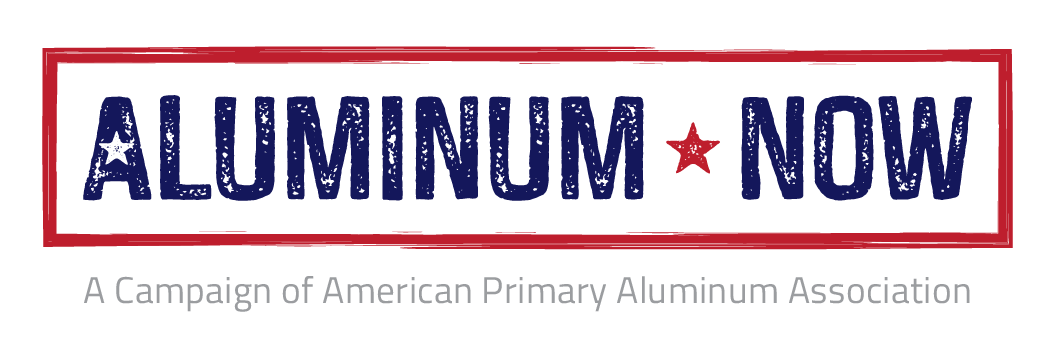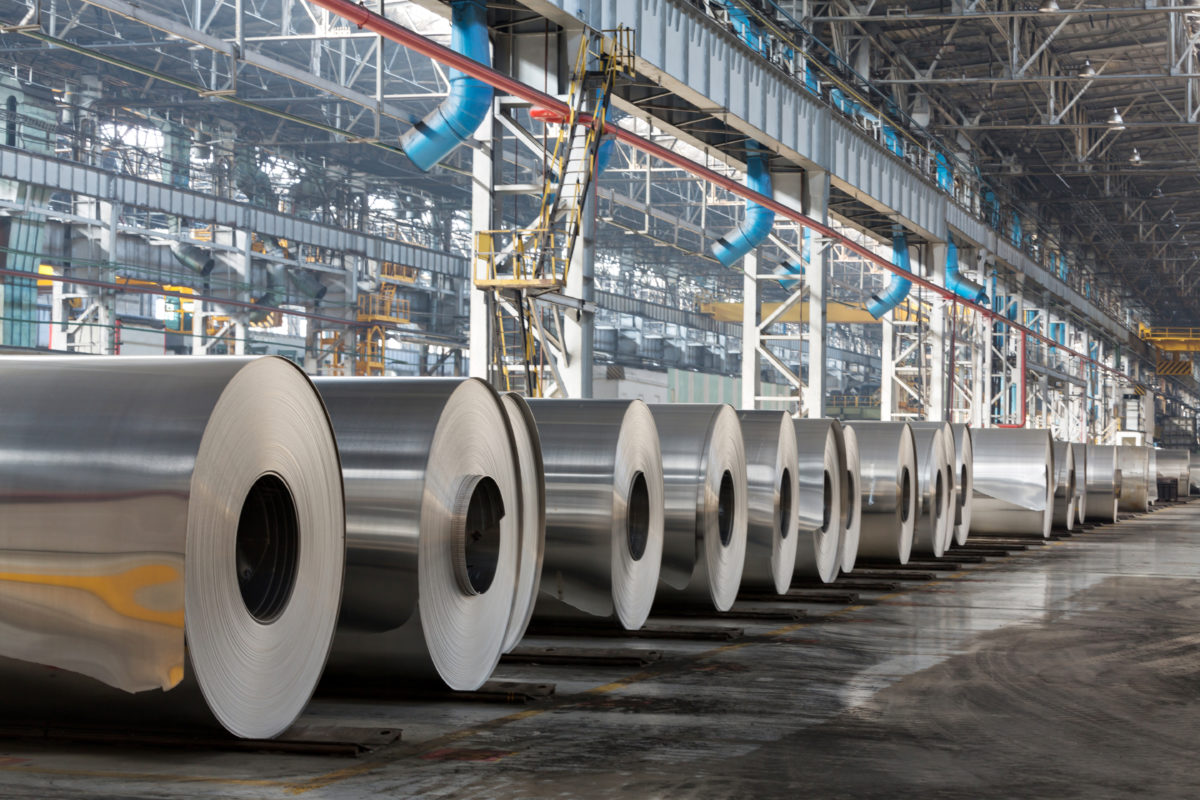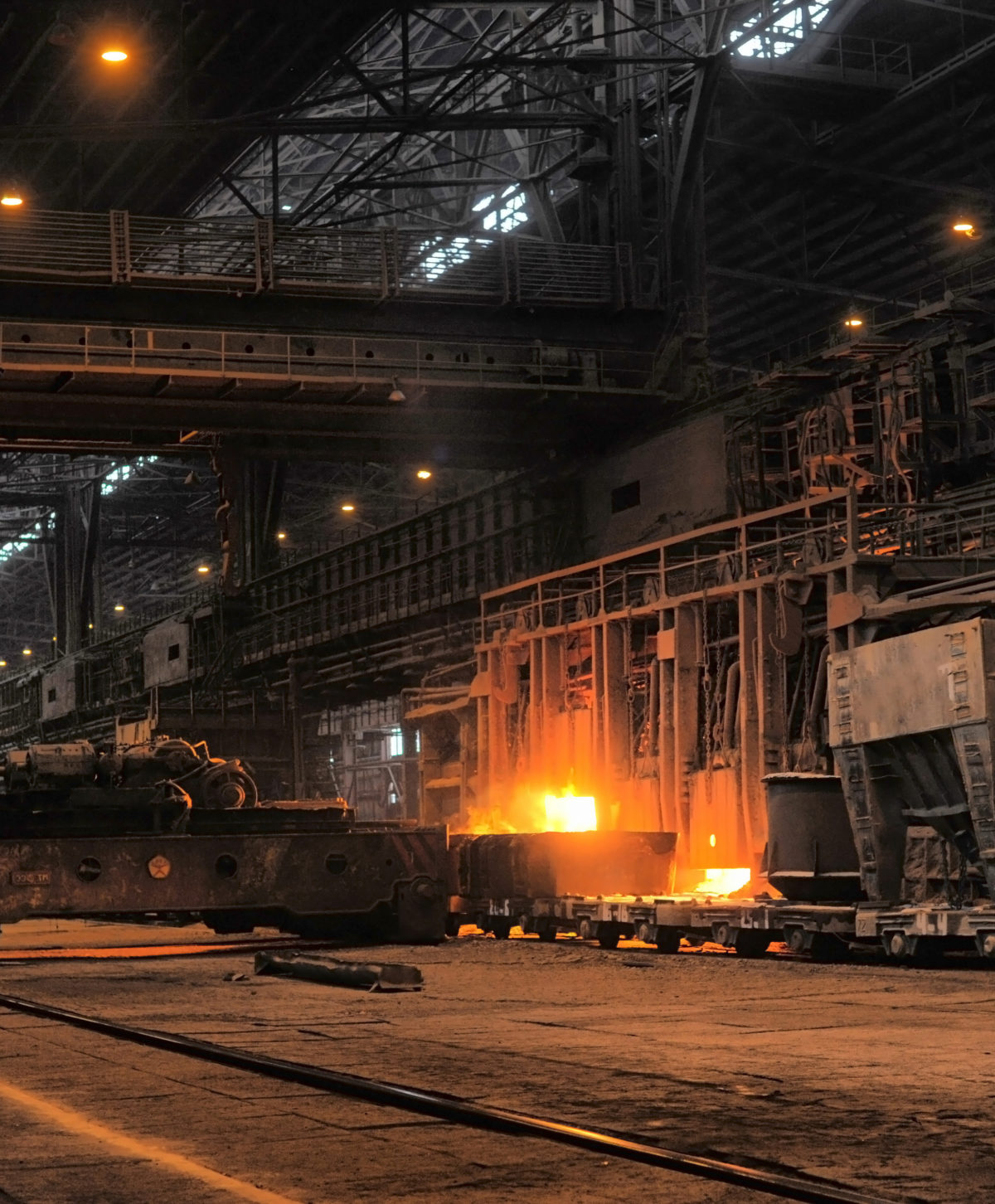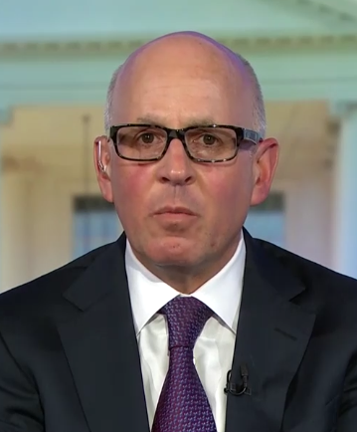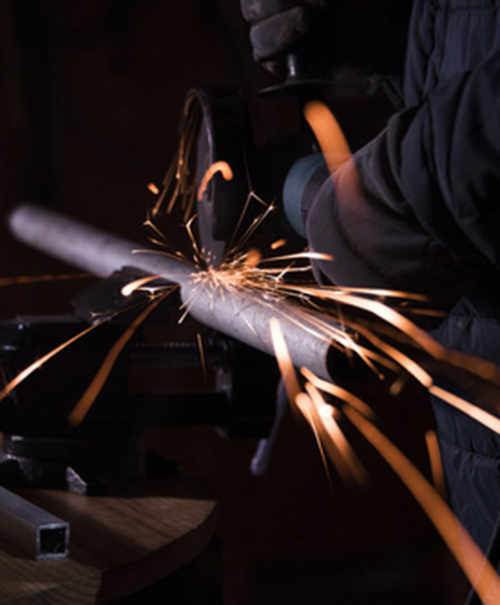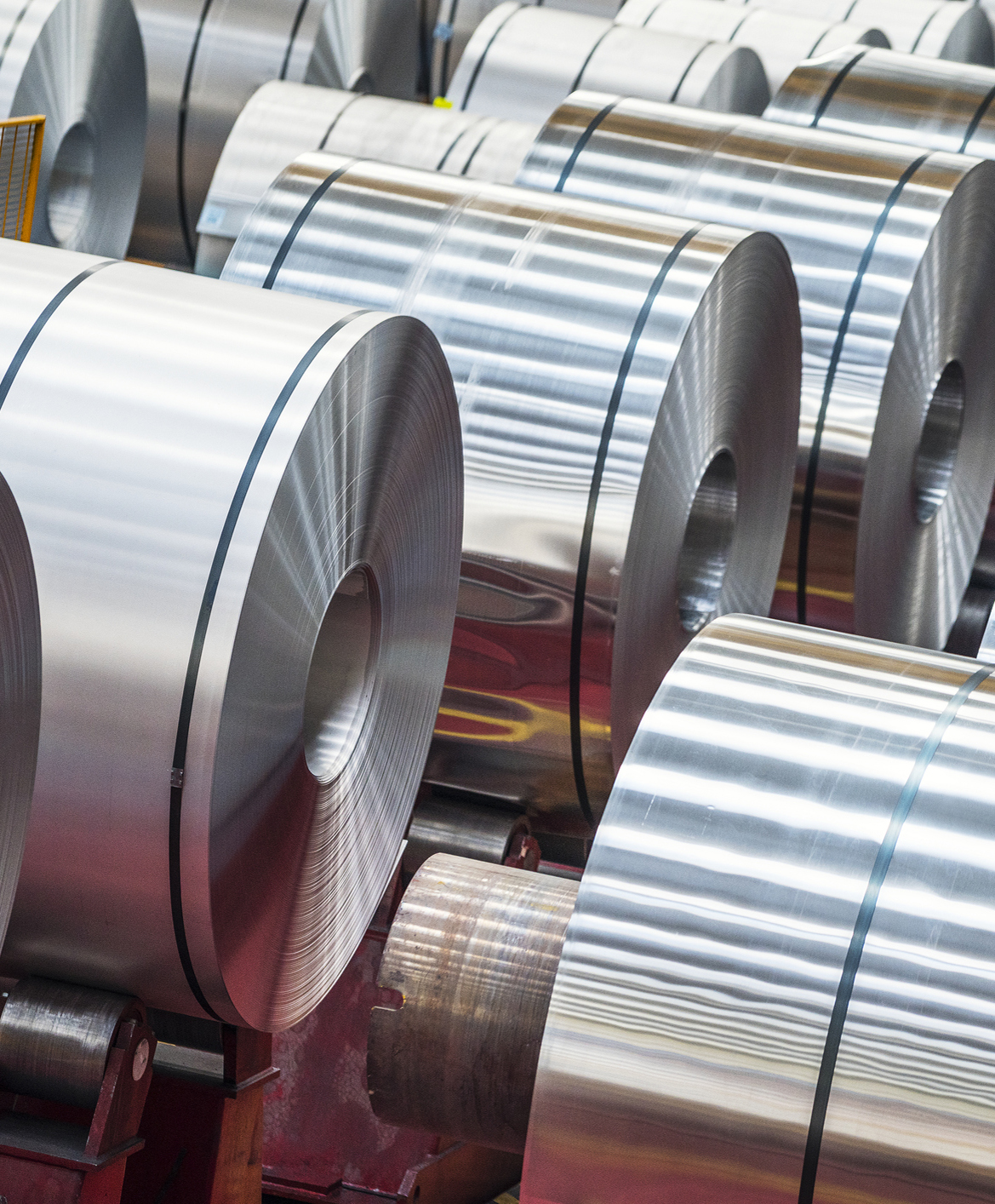Author: wpengine
APAA Post-Hearing Statement regarding United States-Mexico-Canada Agreement (Download)
APAA: Continued Section 232 Relief Through Tariffs and Binding Quotas Are Absolutely Necessary to Protect American Aluminum Workers
October 4, 2018 – Washington, DC – Following the announcement of the new trade agreement, The United States, Mexico, Canada Agreement (USMCA), by the Trump administration, the American Primary Aluminum Association (APAA) that represents the majority of American primary aluminum producers released a short statement:
“President Trump is 100% correct — tariffs have been instrumental in leading to the recovery and restart of substantial primary aluminum capacity,” said Mark Duffy, Executive Director of the APAA. “Because of President Trump’s leadership on this issue and the Section 232 tariffs, the American primary aluminum industry, an industry vital to our national security, will increase production by 60 percent by the year’s end. This is precisely what the Section 232 relief was intended to accomplish. Without this relief, the United States was at significant risk of being completely dependent on offshore sources for this critical component for our national security.”
As the President recognized in his Rose Garden statement announcing the USMCA, either continued tariffs or binding quotas for Canada and Mexico are critical for continuing and maintaining the restarts to rebuild this vital industry that was on the verge of extinction.
About the American Primary Aluminum Association (APAA): The American Primary Aluminum Association will advocate to advance the interests of America’s primary aluminum industry and its workers through the Aluminum Now campaign. APAA is registered and incorporated in Washington, DC and operates as a non-profit trade association. For more, please visit: www.aluminumnow.org
Media Contact:
media@aluminumprod.wpengine.com
Trump’s Tariffs Are Paying Off for Century Aluminum
HAWESVILLE, Ky. — President Trump’s aluminum tariffs have rattled global businesses, set off retaliatory levies and started to eat into profits of some major American companies.
But they have also provided a lifeline to other United States businesses, like Century Aluminum, the struggling smelter in Kentucky that is at the heart of Mr. Trump’s trade fight.
After years of foreign competition that eroded Century’s market share, prompted layoffs and put its smelter here on the brink of perpetual collapse, the company is now riding high.
Century is planning to invest over $150 million to more than double output at the plant, and add 275 jobs in the process. The average salary and benefits package for a worker is $90,000 a year.
On Wednesday, Wilbur Ross, the commerce secretary, took a victory lap to mark the revival of Century, which is reaping the dividends of Mr. Trump’s trade war.
“It’s days like this that I hoped would happen when I took the job in Washington,” Mr. Ross, a former steel magnate, said to a room of workers at the plant here. “We’re going to keep going, despite what the naysayers say.”
Century’s victory is no accident. For years, the company lobbied the United States government to take action to protect the aluminum industry, advocating tariffs and other trade barriers to stop imports of cheap metal from China.
According to the Commerce Department, the United States accounts for just 1 percent of global aluminum output and imports accounted for 90 percent of the aluminum market in the United States last year. China produces 49 times more aluminum than the United States, where only six smelters remain.
Century has faced years of layoffs and its smelter here has several times been on the brink of shutting down. In 2015, it slowed production to 40 percent of its maximum capacity, cutting about 300 jobs. It was not until Mr. Trump decided this year to impose tariffs of 10 percent on aluminum and 25 percent on steel — saying that foreign metals posed a national security risk — that the company received the lifeline it was looking for.
“There was a significant risk of shutting down this year,” Jesse E. Gary, Century’s general counsel.
In a state with two Republican senators and a Republican governor, this is what workers who voted for Mr. Trump wanted when they took a chance and cast their ballots for him in 2016.
“If someone else had been elected, this might not have happened,” said Coy Zuelly, a process technician at Century who was laid off in 2015 and has since been rehired.
Mr. Zuelly, who voted for President Barack Obama, said he supported Mr. Trump because of his commitment to protecting American manufacturing jobs with tariffs.
Despite the new signs of hope in Hawesville, the prospects for the American aluminum industry and the broader economic impact from Mr. Trump’s tariffs remain uncertain. Several large companies, including Campbell Soup, Daimler, General Motors and Mondelez have all cited tariff-related costs, including retaliatory duties and trade uncertainty, as a drag on profits.
The Aluminum Association, a lobbying group, opposed Mr. Trump’s across-the-board tariffs because, while they benefit primary domestic producers like Century, they are raising costs further down the aluminum supply chain.
Even Alcoa, the other big aluminum producer in the country, opposed the tariffs. The company, which imports much of its aluminum from facilities in Canada, is being hit by the new duties and has asked the Commerce Department for an exemption so it can avoid the 10 percent tax. Last month, Alcoa said that the tariffs could cost the company $100 million this year.
“It’s hard to parse out because we see jobs coming back at Century and other industries that are potentially hurt by it,” said Jack Mazurak, a spokesman for the Kentucky Cabinet for Economic Development. “The further down the manufacturing stream you go, the closer to the finished product, you would see resistance or companies that are saying they may be impacted.”
Chad P. Bown, a trade expert at the Peterson Institute for International Economics, said it was too soon to say what the net effects on the aluminum industry would be. Most of the aluminum sector’s jobs are secondary markets, and it is unclear how they will handle the higher prices once they are passed on. Potentially, more jobs in the aluminum market could be lost than gained by Mr. Trump’s tariffs.
“With the exception of Century, virtually everyone else did not want tariffs,” Mr. Bown said.
Despite the impact on other American businesses, Century has not relented in its campaign to keep the tariffs as punishing as possible. It has been among the most frequent objectors to companies seeking exclusions to the tariffs, according to an analysis by The New York Times. Of the 215 objections to aluminum exclusion requests filed with the Commerce Department, more than half came from Century.
The department has denied a total of 112 requests, including 15 that Century sought. Another 21 of its objections were essentially tossed out because they were not deemed valid by the department.
While Century is benefiting from Mr. Trump’s trade policies, retaliation from Europe and China has dealt a blow to other industries in Kentucky, like spirits, negating the lift that the state is receiving from greater aluminum production.
“Clearly, these tariffs are making our American whiskeys less competitive, and may result in international spirits consumers choosing other spirits categories,” said Frank Coleman, senior vice president at the Distilled Spirits Council. “Depending on how long these are in place, the impact will be felt across the United States throughout the entire supply chain, from farmers to suppliers.”
Mr. Ross, however, played down the consequences for the whiskey industry, musing on Wednesday that a dedicated bourbon drinker was unlikely to switch to wine because of a small price increase.
The aluminum industry’s top priority remains persuading China to curb its overcapacity, but thus far the Trump administration’s negotiations on that front have produced little agreement. A delegation of midlevel Chinese economic policy officials came to Washington on Wednesday to revive trade negotiations at the Treasury Department, but Mr. Ross said he was not optimistic about a breakthrough.
Mr. Ross praised Century’s executives for their commitment to producing aluminum despite the tough competition. Dressed in a blue blazer, khakis and a hard hat with a sticker of the American flag, he cut a red ribbon to commemorate the plant and accepted a desk plaque labeled U.S.A. that was cast from aluminum made from the first smelting pot that had been restarted.
Still, the pressures of Washington could not be easily escaped.
“It will probably take the Office of Government Ethics months to approve this gift, but once they do, I will put it in my office,” Mr. Ross said.
Kentucky Aluminum Smelter Returning to Full Production
HAWESVILLE, Ky. (AP) — An aluminum producer has begun the return to full production at its smelter in Kentucky, which is planned to open up hundreds of new jobs.
Century Aluminum said in a news release the ceremony Wednesday at Hawesville marks the return to full capacity of the first of three lines to be restarted at the smelter. More than 125 employees have been hired, with almost 300 to be added by early next year.
Century closed three lines and laid off about 320 workers at the smelter in 2015 in a dispute over electricity prices. The company says it has operated at 40 percent capacity for the last three years.
Century is investing more than $150 million to upgrade smelting technology and train employees to use new equipment.
The smelter produces aluminum that supplies the defense and aerospace industries.
White House help for aluminum industry benefits Western Kentucky, workers
Wednesday, Kentucky will welcome U.S. Commerce Secretary Wilbur Ross to usher in a new era of economic growth for the commonwealth. Century Aluminum, America’s largest primary aluminum producer, will host a ceremonial restart as we increase production at the Hawesville, Kentucky primary aluminum smelter by 60 percent. That will result in nearly 300 new jobs created in Western Kentucky by early next year.
As CEO of Century Aluminum, I, as well as my colleagues, are truly honored to be welcoming Secretary Ross, who has worked tirelessly with President Trump to save the American aluminum industry.
In recent years, Century Aluminum was forced to curtail capacity at our Hawesville smelter to 40 percent as foreign countries engaged in illegal trade practices that hurt American workers. In late 2015, the U.S. primary aluminum industry was on the brink of collapse and at one point, the whole industry had announced it was closing.
Today, as a result of the action taken by President Trump and Secretary Ross, thousands of American aluminum workers are finally winning again. As a result of the renewed confidence in the market, we are in a position to invest $150 million to restart potlines and create the hundreds of new jobs.
While the upcoming ceremonial restart is a historic day for Kentucky families and our local community, our struggle is far from over. Foreign governments and aluminum producers continue to jockey for exemptions from the Trump administration’s aluminum tariffs. Some groups continue to fight the president’s trade agenda and are trying to undermine the program from within. Now, more than ever, we need to stand strong against attempts to weaken or undermine the tariff relief. In simple terms, if the tariffs are to have any real impact, there can be very few exclusions.
The fight of the American primary aluminum industry is well-documented. Global overcapacity of primary aluminum crippled domestic production, forcing smelters across America’s heartland to dramatically slow production, laying off thousands of workers. The industry faced an increasingly unlevel playing field tilted in favor of India, the Persian Gulf, China and other foreign nations. Even geopolitical allies like the EU have long had tariffs on U.S. aluminum coming to their shores. It wasn’t until this administration that our government stepped in to stop the cheating and address the flood of foreign imports racing onto our shores.
President Trump and his administration appropriately recognized that the adverse effects on the industry represented a clear and present danger to the nation’s national and economic security. Since the president signed the aluminum Section 232 proclamation earlier this year – imposing tariffs on imports of foreign aluminum, we have seen a renewed sense of confidence in our industry. As a direct outcome of President Trump’s action, the U.S. primary aluminum industry has already started expansions that will increase its production by 60 percent.
At Century Aluminum, these tariffs have allowed us to invest more than $150 million in our facility to upgrade smelting technology, train existing employees to use new equipment, and recruit more tradesman, mechanics and engineers. These are high-paying jobs for Kentucky that will help support our local economy in Hancock County and beyond.
Due to President Trump’s bold and courageous leadership, hundreds of families across Western Kentucky have been given another shot at the American dream. President Trump and Secretary Ross stand up to special interest groups and continue to push forward with an “America First” trade policy that levels the playing field for U.S. aluminum workers and millions of workers in industries across America.
Mike Bless is president and chief executive officer of Century Aluminum.
Trump’s aluminum tariffs restore a crucial industry and protect American jobs
As President Trump made clear at the NATO summit with European leaders, “other countries trade barriers” have for years harmed U.S. businesses and hurt American workers while U.S troops have defended their borders. These same countries are now attacking criticizing the U.S. for levying its own tariffs to protect our own national defense.
As some of America’s largest aluminum producers, we strongly support Trump’s leadership on the steel and aluminum tariffs to protect our own national security. Since Trump announced the historic tariffs in March, the American public has been inundated with “sky is falling” rhetoric from entrenched special interests and prognosticators opposing the action.
Several months have now passed since the tariffs were implemented, however, and the reality is quite different from the sour predictions: The American economy is as strong as ever, with unemployment levels at or near all-time lows and capital investment increasing at double digit levels. In fact, manufacturing jobs have increased in each month since the tariffs went into place, including in steel- and aluminum-consuming industries like fabricated metal products, which added 7,000 jobs in June alone.
As a result of Trump’s bold leadership, Century Aluminum has begun investing over $115 million to increase production by 60 percent at the Hawesville, Ky., smelter, the last remaining U.S. smelter producing the high-purity aluminum needed by our military. In Marston, Mo., Magnitude 7 Metal’s aluminum smelter — a facility which had been previously forced to lay off nearly 900 workers when production ceased — is restarting production and creating hundreds of new American jobs in Missouri’s bootheel. As a direct result of Trump’s decisive actions, the U.S. primary aluminum industry will have increased its production by over 60 percent in 2018 alone.
Other parts of the U.S. aluminum industry are booming as well. For the first time in decades, two new aluminum rolling mills are being built in Kentucky. Rolling mills in Arkansas, South Carolina, Kentucky, and Tennessee are expanding or restarting production. Aluminum extruders in Michigan, Virginia, Wisconsin, Georgia, Ohio, and other states have announced expansions. Altogether, U.S. aluminum producers have announced the creation of over 2,300 direct production jobs and the investment of over $3 billion since the aluminum Section 232 investigation was launched.
This growth is just the beginning. Contrary to those “sky is falling” predictions that the tariffs would hurt downstream aluminum demand, orders for all major aluminum product categories have actually increased since the tariffs went into place. Aluminum extrusion demand is near all-time highs.
Before the president took this historic action, subsidized overproduction by state-owned producers in places like India, Russia, the Middle East, and China had forced smelters across the United States to close and cost over 8,000 American aluminum workers their jobs between 2003 and 2017. This ravaged small, rural communities in America’s heartland and threatened U.S. national security.
To put faces and names to the revitalization of America’s primary aluminum industry, one only has to hear the story of Dusty Stevens, a potline superintendent at Century’s Hawesville smelter. Dusty’s father and brother lost their jobs at the smelter due to foreign countries cheating the system. But Dusty recently stood with Trump as he signed the proclamation to impose tariffs, giving hope to the Stevens family. If you travel down Route 60 from Hawesville to Marston, Missouri, Derrick Cummins will explain how three generations of his family have jobs again after Trump’s tariffs allowed the Marston smelter to restart.
Unfortunately, the Stevens and Cummins families, and thousands of hardworking Americans like them, now face a new threat right here at home as special interests seek to restrict the president’s ability to negotiate better trade deals and protect our national security interests. Rather than attacking the president’s actions to follow through on his campaign promises to put American workers first and protect our national security, these special interests should be fighting the illegal retaliatory actions on American products imposed by the EU, China, and others. As U.S. Trade Representative Robert Lighthizer and other experts have clearly shown, these foreign actions are illegal under World Trade Organization rules. These foreign governments should be called on to immediately comply with the very rules they claim to champion and immediately cease their illegal retaliatory tariffs.
Thanks to Trump’s bold actions, the future is bright for the American aluminum industry. American aluminum workers can feel confident that Trump will continue to stand up to countries that cheat as we work together to create more American jobs and revitalize the American aluminum industry.
Jesse Gary, executive vice president of Century Aluminum, and Bob Prusak, chief executive officer of Magnitude 7 Metals, serve as chairman and vice chairman of the American Primary Aluminum Association.
American Primary Aluminum Producers Launch Official Association to Protect Long-Term Interest of Industry
WASHINGTON, June 11, 2018 /PRNewswire-USNewswire/ — Today, Century Aluminum and Magnitude 7 Metals launched the American Primary Aluminum Association (APAA), to advocate for the distinct interests of the primary aluminum industry in the United States. The APAA will represent and promote the common interests of primary aluminum producers and their workers to maintain and increase primary aluminum production in the United States.
“The American Primary Aluminum Association gives U.S. primary aluminum producers a platform to specifically address the interests of the American primary aluminum industry,” said Mark Duffy, CEO of the American Primary Aluminum Association. “We look forward to working with other organizations – such as the Aluminum Association, the Aluminum Recyclers Council, and the Aluminum Extruders Council – on areas where we have common interests. Too much is at stake for the American primary aluminum industry, and with the establishment of the APAA, American workers can feel confident that the APAA will be a vocal and authoritative voice to foster an environment in which the industry can continue to prosper.”
Since President Trump imposed relief under Section 232, smelters and production facilities across the United States have restarted idled capacity, re-hired laid off workers and hired hundreds of new ones. By the end of this year, it is anticipated that U.S. primary aluminum production will have increased by approximately 60 percent. The APAA and the Aluminum Now campaign seek to build off this momentum.
The American Primary Aluminum Association is registered within the District of Columbia and will be operated exclusively as a non-profit trade association. APAA is actively seeking partners who are looking to advance the goals and objectives of America’s primary aluminum industry.
About the American Primary Aluminum Association (APAA): The American Primary Aluminum Association will advocate to advance the interests of America’s primary aluminum industry and its workers through the Aluminum Now campaign. APAA is registered and incorporated in Washington, DC and operates as a non-profit trade association. For more, please visit: www.aluminumnow.org
Donald Trump’s steel, aluminum tariffs lift low and moderate income families
No president has done more to defend the American manufacturing base from unfair trade practices than Donald J. Trump. What may surprise even his critics is that no president — since Lyndon B. Johnson declared a “war on poverty” — has done more to lift the prospects of low- and moderate-income families than President Trump.
A poster child for the success of President Trump’s tax, trade and worker-training policies in lifting the spirits — and incomes! — of American workers will be a new aluminum mill. This new aluminum mill will be built in Ashland, Ky., in the midst and mists of Appalachia’s rugged mountains, in one of our nation’s most poverty-stricken areas.
Ashland is located in Boyd County off Route 60, on the banks of the Ohio River, bordering West Virginia and Ohio. It was once a booming steel, oil and coal town — until the steel mills in the area started closing down, Ashland Oil moved its headquarters to the Cincinnati region, and the coal mines began to shutter.
Today, Boyd County suffers from a declining population and a debilitating opioid epidemic. But help — not just false hope — is on the way.
The new $1.5 billion aluminum rolling mill that will soon be built — with a groundbreaking on Friday — will cover 45 acres. This state-of-the art mill will create up to 1,800 construction jobs and about 500 permanent positions in a county where the unemployment rate is almost 40% higher than the national unemployment rate.
Striking a strong blow on behalf of working men and women, the starting salary at this plant will be $65,000 a year. This compares with a median household income in Boyd County of $44,140 — which is well below the national median of $59,039.
To ensure that the working men and women of Boyd County will be equipped to take advantage of these opportunities, the plant operator has teamed with Ashland Community and Technical College to develop programs to train workers right out of high school. Such programs are consistent with Trump’s longtime advocacy of trade schools, apprenticeships and workforce development as a way for the working middle class to advance professionally.
For example, in Trump’s State of the Union address this year, he called for more investment in workforce development and job training, and last year he signed an executive order to expand “industry-recognized” U.S. apprenticeships. Boyd County is indeed delivering.
The plant’s builders credit Trump’s aluminum tariffs and tax cuts as essential ingredients to their future growth and prosperity. The Trump aluminum tariffs will provide this mill and the broader U.S. aluminum industry a stout defense against massive government-subsidized and supported overcapacity in the global marketplace and the resulting surges of aluminum imports into the United States from a range of countries — and serve the broader national defense in the process.
The president’s tax bill likewise provides two strong incentives to this critical investment in America’s manufacturing and defense industrial base. The additional cash flow generated from the president’s tax cut helps provide the investment capital. Investors can also take advantage of the Trump tax law’s “Opportunity Zone” provision that was designed specifically to encourage investments in economically depressed areas.
This new aluminum plant is not the only example of how Trump’s tariffs and tax policies are strengthening our manufacturing and defense industrial base and lifting the fortunes of America’s working men and women. Following the imposition of tariffs, U.S. Steel announced it would restart its steel-making facilities and one blast furnace at an Illinois plant. Century Aluminum Co. announced a nearly $120 million investment to expand and modernize a smelter in nearby Hawesville, Ky., that had its production decreased to 40% since 2015. Alcoa will reopen an idle smelter in Indiana. Steelmakers Nucor and Commercial Metals will build new mills in Missouri and Oklahoma, respectively.
Trump has also provided relief to the U.S. washing machine and solar industry by imposing steep tariffs. Critics at the time warned the move would hurt consumers, but the tariffs have been a boon to the U.S. worker. Whirlpool said it would add 200 jobs at its Ohio plant after the announcement, the South Korean manufacturer Samsung opened its first plant in South Carolina, and LG Electronics broke ground on a 310-acre site in Tennessee — their washers will be made with American hands.
There can be no better way to make America — and American manufacturing — great again than to start to rebuild those communities of America most harmed by the forces of globalization. These new facilities will stand as shining testimony to the success of tough trade actions, smart tax policies and targeted worker-training programs.
Peter Navarro is assistant to the president and director of the White House National Trade Council.

